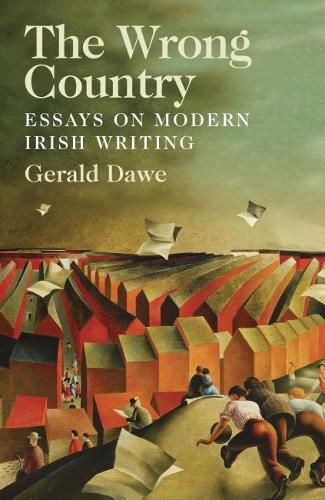Readings Newsletter
Become a Readings Member to make your shopping experience even easier.
Sign in or sign up for free!
You’re not far away from qualifying for FREE standard shipping within Australia
You’ve qualified for FREE standard shipping within Australia
The cart is loading…






This engaging, personal chronicle by Irish poet Gerald Dawe explores the lives and times of leading Irish writers, including W.B. Yeats, Elizabeth Bowen, Samuel Beckett and Stewart Parker, alongside lesser-known names from the earlier decades of the twentieth century, such as Ethna Carberry, Alice Milligan, Joseph Campbell and George Reavey. It also portrays the changing cultural backgrounds of the author’s contemporaries, such as Derek Mahon, Eavan Boland, Eilean Ni Chuilleanain, Colm Toibin, Leontia Flynn and Sinead Morrissey.
Gerald Dawe presents an accessible view of modern Irish literature, filtered perceptively through his own distinctive lens, and raises important questions about cultural belonging, the commercialisation of contemporary writing, and the influence of Irish literary culture in a digital age. In this lyrical exploration of national identity, The Wrong Country repositions our understanding of modern Irish writing in a wider context for today’s readers.
$9.00 standard shipping within Australia
FREE standard shipping within Australia for orders over $100.00
Express & International shipping calculated at checkout
This engaging, personal chronicle by Irish poet Gerald Dawe explores the lives and times of leading Irish writers, including W.B. Yeats, Elizabeth Bowen, Samuel Beckett and Stewart Parker, alongside lesser-known names from the earlier decades of the twentieth century, such as Ethna Carberry, Alice Milligan, Joseph Campbell and George Reavey. It also portrays the changing cultural backgrounds of the author’s contemporaries, such as Derek Mahon, Eavan Boland, Eilean Ni Chuilleanain, Colm Toibin, Leontia Flynn and Sinead Morrissey.
Gerald Dawe presents an accessible view of modern Irish literature, filtered perceptively through his own distinctive lens, and raises important questions about cultural belonging, the commercialisation of contemporary writing, and the influence of Irish literary culture in a digital age. In this lyrical exploration of national identity, The Wrong Country repositions our understanding of modern Irish writing in a wider context for today’s readers.